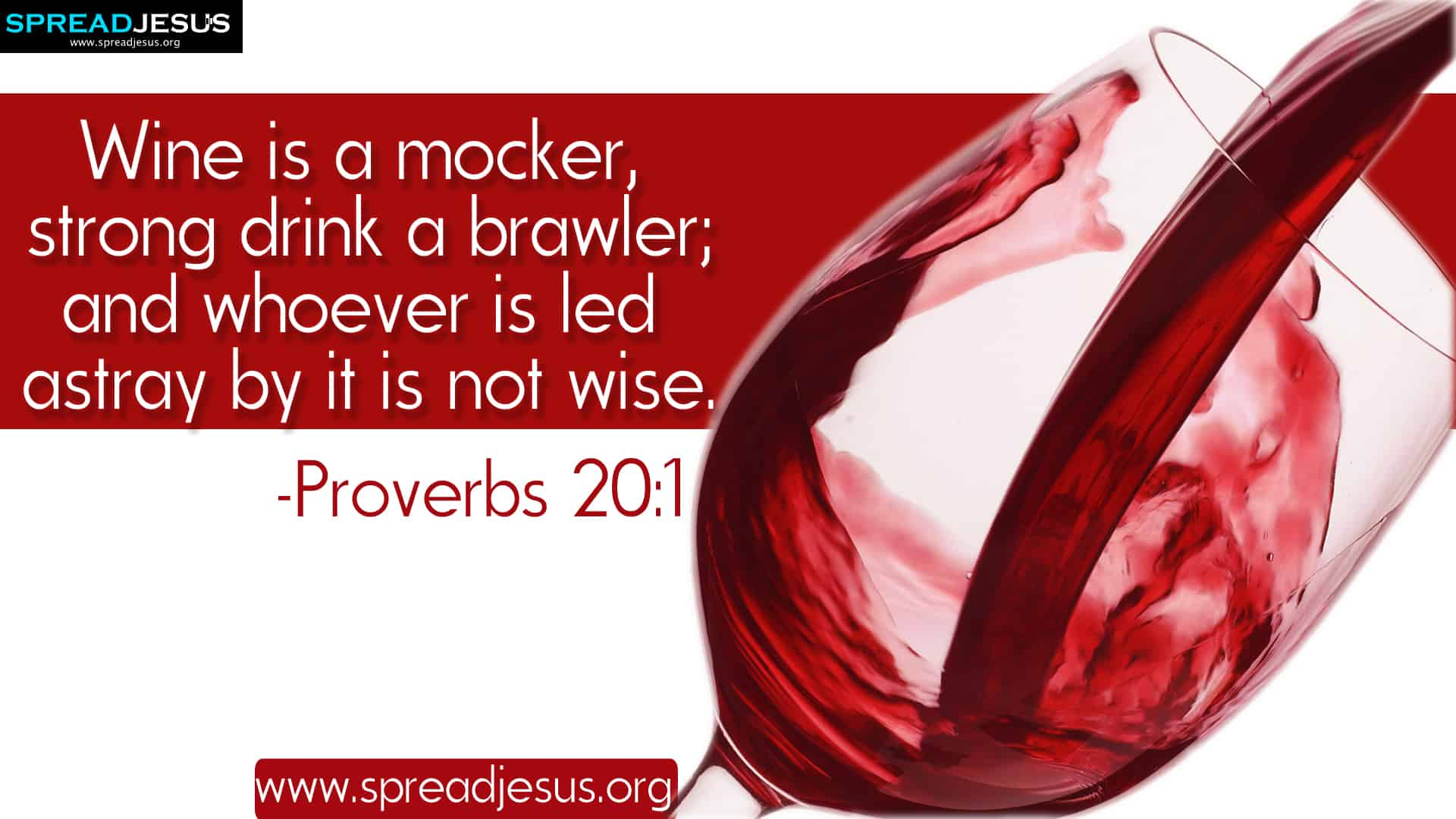A recent report carried
the following headline, “America’s Drinking Problem Is Much Worse This Century.”
According to the article, “Americans are drinking more than ever before, a
troubling trend with potentially dire implications for the country’s future
health-care costs.” The number of adults who binge drink at least once a week
could be as high as 30 million, greater than the population of every state,
save California. One of the doctors involved in the study concluded, “Alcohol
is our number one drug problem . . . Excess drinking caused on average more
than 88,000 deaths in the U.S. each year—more than twice the number of deaths
from prescription opioids and heroin last year. The total includes drunk-driving
deaths and alcohol-linked violence, as well as liver disease, strokes and other
medical conditions.”
The Bible is full of
warnings about the dangers of alcohol, but perhaps the most vivid is found in Proverbs
23:29-35:
“Who
has woe? Who has sorrow? Who has strife? Who has complaining? Who has wounds
without cause? Who has redness of eyes? Those who tarry long over wine; those
who go to try mixed wine. Do not look at
wine when it is red, when it sparkles in the cup and goes down smoothly. In the end it bites like a serpent and stings
like an adder. Your eyes will see strange things, and your heart utter perverse
things. You will be like one who lies
down in the midst of the sea, like one who lies on the top of a mast. “They
struck me,” you will say, “but I was not hurt; they beat me, but I did not feel
it. When shall I awake? I must have another drink.”
Notice all the side
effects that come from having too much to drink: sorrow, self-pity, hangover,
bloodshot eyes, hallucinations, slurred speech, instability of mind, staggered
steps, deadening of the senses and eventually addiction. Show me where to sign
up for that!
If you are struggling with
the issue of drinking, I want you to know that God’s warnings are in place not
because He’s a killjoy, but because He’s a lifesaver. God’s danger signs are in
place to maximize life. You might think of God’s moral laws like guardrails
that are put on a windy mountain pass to keep the car from careening off the
edge.
Randy Alcorn has said, “A
smart traveler doesn’t curse guardrails.
He doesn’t whine, “That guardrail dented my fender!” He looks over the
cliff, sees demolished autos and thanks God for guardrails. God’s guardrails
are his moral laws. They stand between us and destruction. They are there not
to punish or deprive us, but to protect us.”
Moderation is not the cure
for the liquor problem. Moderation is the cause of the liquor problem. Becoming
an alcoholic does not begin with the last drink, it begins with the first.
Abstinence is best, because it’s impossible to be bitten by a rattlesnake you
never play with.
By the way, for those of
you who think it’s fine to drink and it won’t damage your Christian witness,
consider Paul’s words:
·
Romans 14:21: “It
is good not to eat meat or drink wine or do anything that causes your brother
to stumble.”
·
1 Corinthians
10:31: “So, whether you eat or drink, or whatever you do, do all to the glory
of God.”
·
Philippians 2:4:
“Let each of you look not only to his own interests, but also to the interests
of others.”
When you drink in front of
unbelievers, children and others who are looking to you as an example of Christ
what message are you sending? If you know that there is someone who struggles with
alcohol or has struggled in the past with alcohol abuse, out of respect for
them the Bible says that we are to limit our Christian liberty for the sake of
others. I think Ravi Zacharias gave us one of the best principles when it comes
to understanding legitimate pleasure, “Any pleasure that jeopardizes the sacred
right of another is an illicit pleasure.”
In one of his books, Max
Lucado, comes clean about his struggle with alcohol. Lucado said, “I come from
a family of alcoholism. If there's anything about this DNA stuff, I've got it.”
For more than 20 years, drinking wasn’t a major issue for Lucado. But a couple
of years ago, it nearly became one. Lucado recalled, “I lowered my guard a bit.
One beer with a barbecue won't hurt. Then another time with Mexican food. Then
a time or two with no food at all.”
One afternoon on his way
to speak at a men’s retreat he began to plot: “Where could I buy a beer and not
be seen by anyone I know?” He drove to an out-of-the-way convenience store,
parked, and waited till all the patrons left. He entered, bought a beer, held
it close to his side, and hurried to his car. “I felt a sense of conviction,”
Lucado remembers, “because the night before I'd had a long talk with my oldest
daughter about not covering things up.”
Lucado didn't drink that
beer. Instead he rolled down the window, threw it in a trash bin, and asked God
for forgiveness. He also decided to come clean with the elders of his church
about what happened: “When I shared it with the elders, they just looked at me
across the table and said, ‘Satan is determined to get you for this right now.
We're going to cover this with prayer, but you've got to get the alcohol out of
your life.’”
No matter how out-of-control
your addiction might be, Christ has the ability to break the chains of your
dependence. You can win the battle with the bottle. -DM





